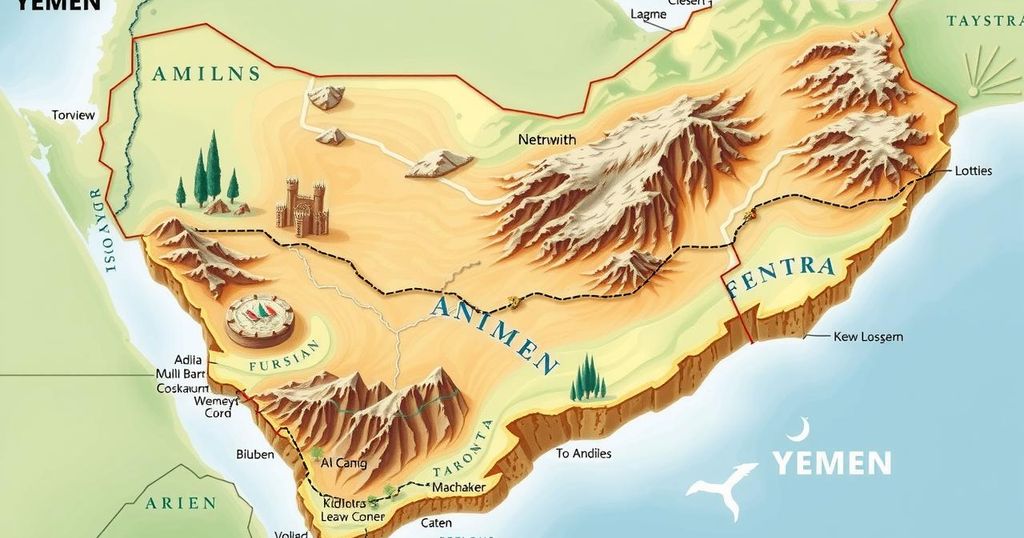The Ongoing Crisis of the Yemeni Civil War: A Comprehensive Overview
The Yemeni Civil War began in 2014 with the Houthi takeover of Sana’a, evolving into a severe humanitarian crisis exacerbated by Saudi-led interventions. Despite attempts at peace negotiations, the conflict intensified as the Houthis targeted Israel and maritime operations in 2023, revealing the war’s deep-rooted complexities and regional implications.
The Yemeni Civil War has persisted since 2014, commencing with the Houthi rebels’ seizure of Sana’a amidst the instability following the Arab Spring. This conflict escalated due to Saudi Arabian and UAE intervention, leading to a humanitarian crisis characterized by severe starvation rates and a cholera outbreak. By 2020, the Houthi forces were gaining advantages as international forces began withdrawing, while in 2023, they expanded their operations by targeting Israel and affecting maritime traffic in the Red Sea.
Historically, Yemen’s turmoil can be traced back to Ali Abdullah Saleh’s presidency, which began in 1978 when he unified North and South Yemen. His long-standing rule faced resistance from a discontented Zaydī Shiʿi minority, setting the stage for the emergence of the Houthi movement. Following the Arab Spring uprisings in 2011, widespread protests erupted against Saleh, leading to his eventual departure in 2012, yet various factions remained divided and continued to vie for power.
The chaos heightened significantly in 2014 when Abdel Rabbuh Mansur Hadi, Saleh’s successor, faced renewed opposition from Houthi rebels. As the rebels advanced and the political situation deteriorated, Hadi resigned and was placed under house arrest. The United Nations condemned the Houthi actions, while Hadi fled, prompting a Saudi-led coalition to intervene militarily in March 2015, effectively initiating a naval blockade and air strikes against the Houthis.
The Saudi intervention aimed to restore Hadi’s presidency and halt the Houthi advance, initially succeeding in reclaiming Aden. However, the coalition struggled against Houthi resilience in the north, resulting in massive civilian casualties and destruction. The humanitarian situation worsened, leading to significant international concern and diplomatic efforts to negotiate peace, albeit with limited success over the years.
Despite periodic cease-fires, the conflict remained heavily fragmented, with various factions, including southern secessionists, further complicating the situation. By 2022, a tenuous cease-fire enabled political transitions, yet ongoing tensions persisted. In 2023, Saudi Arabia sought to negotiate directly with the Houthis, amidst their growing assertiveness on regional matters and hostilities toward Israel resulting from the escalation of the Israel-Hamas conflict.
The Yemeni Civil War has evolved into one of the most devastating humanitarian crises in recent history, exacerbated by a complex landscape of local and international political interests. The ongoing power struggles, interventions by foreign entities, and the rebels’ recent aggressive posturing underscore the need for concerted international efforts to mitigate the conflict and address its dire consequences.
Original Source: www.britannica.com




Post Comment